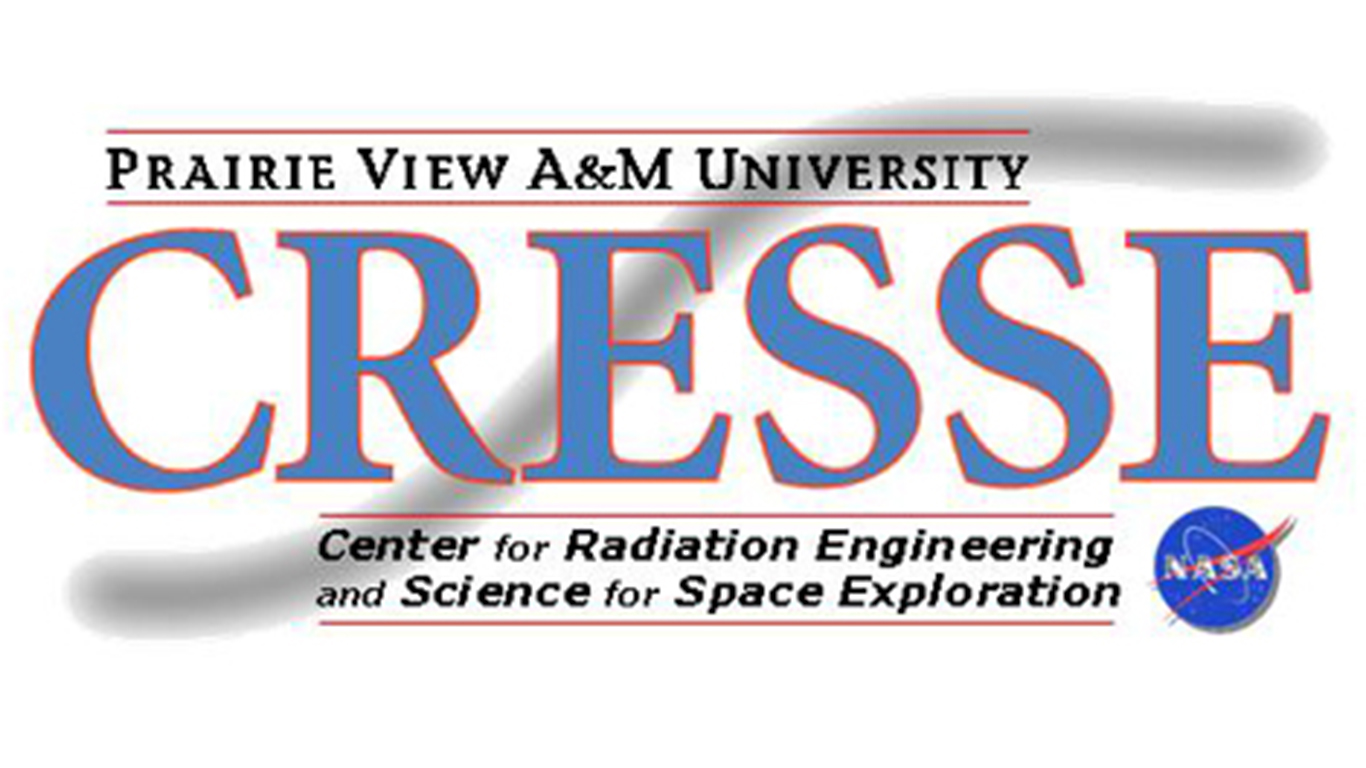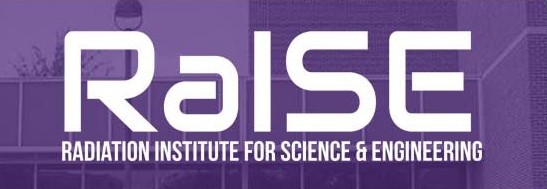
Prairie View A&M University is home to a number of renowned scholarly and research centers and institutes that are pushing the boundaries of knowledge across broad academic disciplines and also play as critical points of convergence for the university and cultural experience. These research centers and institutes are among the most important ways PVAMU encourages multi- and inter-disciplinary collaboration. Listed here is a selection of the centers and institutes at the university and its schools. To see more centers and to learn more about organizations at specific colleges and schools, please visit the respective college websites.
National Center for Infrastructure Technology (NCIT)

National Center for Infrastructure Technology (NCIT) The national-tier University Transportation Center (UTC), led by PVAMU, will focus on improving the durability and extending the life of transportation infrastructure through its research, education, and technology transfer programs. Equity, a guiding principle for NCIT will be addressed through better infrastructure policy and workforce opportunities for underserved and underrepresented populations. Environmental stewardship through infrastructure policy and materials recycling will address climate and sustainability. Transformation of American infrastructure from both a physical and policy perspective is the ultimate goal of the center.
Center for Computational Systems Biology (CCSB)

The Center for Computational Systems Biology (CCSB) in the College of Engineering is a multidisciplinary center to study complex biological processes such as cancer, head injury in football, Parkinson’s disease, pulmonary hypertension, and herbicide-resistant weeds, by employing state-of-the-art computational and engineering skills. External collaborations include Translational Genomics Research Institute, Salk Institute, University of Pittsburg Medical Center, and the University of Cambridge. The Center is supported by funds from the TAMUS Chancellor’s Research Initiative, NCI/NIH, Stand Up To Cancer (SU2C), NSF, and Michael J. Fox Foundation (MJFF).
Center of Excellence in Research and Education for Big Military Data Intelligence (CREDIT)

Center of Excellence in Research and Education for Big Military Data Intelligence (CREDIT) in the College of Engineering is established in 2015 with $5 million funding from the Office of the Assistant Secretary of Defense for Research and Engineering (OASD (R&E)), is dedicated to accelerating research in predictive analytics for science and engineering to effectively address and solve many complex problems posed by big data. Its mission includes training students to become next generation of data scientists and engineers. CREDIT has a multidisciplinary team of faculty researchers, research scientists, postdocs, and graduate and undergraduate research assistants. The core facilities include the Deep Learning Lab and the Cloud Computing Lab.
Cooperative Agricultural Research Center (CARC)

Cooperative Agricultural Research Center (CARC) in the College of Agriculture and Human Sciences plays an important role in agriculture, natural resources and life sciences. The CARC component helps Prairie View A&M University fulfill its land-grant mission of teaching, research and service. Agricultural research in the Cooperative Agricultural Research Center is divided into the following areas: Animal Systems, Plant Systems, Food Systems, Natural Resources and Environmental Systems and Social Systems and Allied Research.
Center for Energy and Environmental Sustainability (CEES)

The Center for Energy and Environmental Sustainability (CEES) in the College of Engineering supports rigorous and expanding the program of research and teaching in the areas of renewable energy and environmental sustainability. The National Science Foundation (NSF) has awarded PVAMU a five-year grant to establish the CEES under the Center for Research Excellence in Science and Technology (CREST) program. CEES promotes research in the areas of biofuels, energy & environment and wind energy and will focus on innovative technical solutions in the energy arena.
Smart Microgrid Advanced Research and Technology (SMART) Center

Smart Microgrid Advanced Research and Technology (SMART) Center in the College of Engineering is supported by the CRI and it is dedicated to making the future power grid reliable, sustainable, secure, and environmentally safe by solving the technical challenges involved in the use of microgrids that have distributed energy sources and loads. The microgrids will be integrated to form the future smart grid. The Center provides educational training to students through research and hands-on experience.
Secure Center of Excellence (SECURE)

SECURE Center of Excellence in the College of Engineering is a CRI-Center, is focused on developing novel protocols to ensure cybersecurity in multiple environments—communications and networks, power grid, social networking in virtual space, cloud computing, and video analytics. It is also engaged in developing sensitive techniques for malware and virus detection and elimination. As part of its educational mission, the Center has developed undergraduate and graduate courses in cybersecurity.
Texas Juvenile Crime Prevention Center (TJCPC)

Texas Juvenile Crime Prevention Center (TJCPC) in the College of Juvenile Justice & Psychology is engaged in research in the areas of juvenile crime and delinquency. It not only develops programs, policies, and strategies to address those social problems but also assists communities and governmental agencies in their implementation. The Center plays a pivotal role in training professionals in the areas of criminal justice and social service.
Center for Radiation Engineering and Science for Space Exploration (CRESSE)

The Center for Radiation Engineering and Science for Space Exploration (CRESSE) in the College of Engineering is focused on developing materials and technologies that would keep astronauts and their critical electronic equipment safe from the effects of harmful space radiation. The Center carries out research in the area of developing space radiation detection systems in testbed zones during exposures at particle accelerator facilities and obtaining detailed dosimetry data and particle spectroscopy data for use in prediction of risks of space radiation in environment and health. Recent CRESSE work has focused on radiation effects work associated with space and national security.
The Radiation Institute for Science and Engineering (RaISE)

Radiation Institute for Science and Engineering (RaISE) in the College of Arts and Sciences is established with funds from the Chancellor’s Research Initiative (CRI) of the Texas A&M University System, utilizes research expertise in both sciences and engineering disciplines to establish unique research opportunities with world-renowned scientific personnel. Radiation biology includes experimental studies and theoretical modeling of space radiation biology studies for NASA conducted on the International Space Station, on the surface of Mars (Curiosity), at the Brookhaven National Labs, at Loma Linda University Medical Center, at Los Alamos National Labs, and at International Facilities (Japan, Germany, and Italy).
The Minority Achievement, Creativity, and High Ability Center (MACH-3)

Minority Achievement, Creativity, and High Ability Center (MACH-3) in the College of Education is supported by the CRI, focuses on the critical populations in the P-20 setting: administration, faculty, and students. Unique to this focus is the Center’s goal of producing cutting-edge best-practices and scholarship that will speak to the contemporary issues impacting these cohorts across the P-20 spectrum and into critical workplace contexts. The MACH-3 Center will serve as a crucible to facilitate combinations of key elements from multiple disciplines and fields required to understand minority achievement, creativity and high ability. Additionally, the Center will expand on and redefine the term “minority” in an effort to set the stage for engaged scholarship that speaks to the assets and potential inherent among populations of color (African American, Latina/o, Native American) and other marginalized groups (women) who are by no measure ‘minor’ in their intellectual capacities, but potentially minor in their presence and representation in certain fields of endeavor, particularly in certain education and professional enclaves.
International Goat Research Center (IGRC)

International Goat Research Center (IGRC) in the College of Agriculture and Human Sciences conducts research projects on caprine reproduction, both assisted and natural. As part of the Cooperative Agriculture Research Center, the IGRC’s research focuses on improving reproductive efficiency (male and female), improving feed efficiency, and creating a better-quality meat goat. In conjunction with the Meat Lab, the IGRC will begin characterizing the physio-chemical properties of goat meat, with the goal of producing a reproductively fecund and environmentally hardy goat for more and better meat. They are interested in value-added goat milk product development, including future sensory testing of products for flavors, as well as post-harvest storage and preservation.
Center of Excellence for Communication Systems Technology Research (CECSTR)

Center of Excellence for Communication Systems Technology Research (CECSTR) in the College of Engineering conducts comprehensive research in the selected aspects of communication systems, Wavelets and Wavelet Transforms, Compressed Sensing/Compressive Sampling Systems, DSP Solutions, Signal/Image/Video Processing, Mixed Signal Systems, Communication Control Systems and High Speed (Broadband) Communication Systems. Among other emerging areas of research, it also seeks solutions to the problems that plague both military and commercial satellite and radar-based communication systems.
